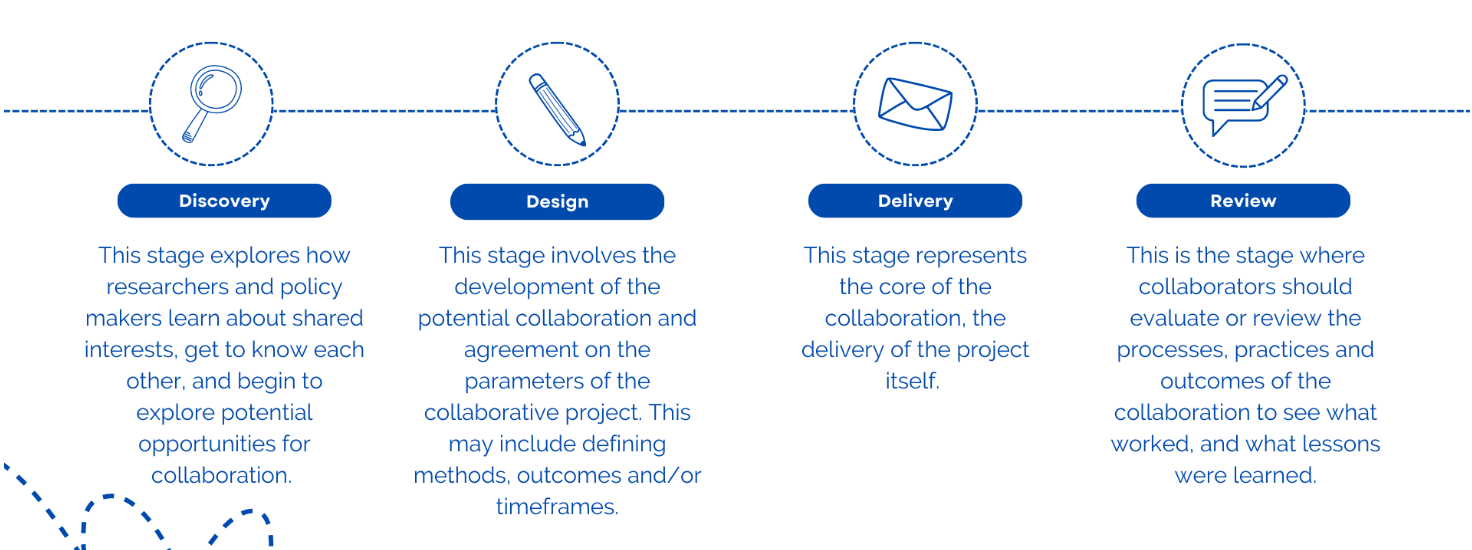As it currently stands, the roles of academia and the public service serve different purposes. Academia aims primarily to generate and disseminate knowledge through education and research, while the public service serves the government of the day, assists in developing its policy agenda and delivers services to the public.
These different purposes drive much of the debate around evidence-based policy, with the relationship between the two presented in two key ways. The first sees policy making as inherently political and argues that policy can at best be evidence-informed. Therefore, academics and the public sector need to work collaboratively to produce usable knowledge (Cairney, 2014, 2017; Head, 2010, 2016; Parkhurst, 2016; Western, 2019). The second focuses more on how academia can more effectively increase the uptake and comprehension of evidence by policy makers (Boaz et al., 2008; Haskins & Margolis, 2014; Oliver et al., 2014; Stoker & Evans, 2016).
Research and policy making are distinct, but both sectors can leverage these differences to come together to better address the complex issues that face Australia today. Oliver et al. (2022) notes that most of the support and research to date tends to focus on dissemination of research or facilitating relationship building. While these elements will also be an important part of future partnerships developed between the APS and academia, more is needed to facilitate collaboration between the sectors. Oliver et al. (2022) state that “[m]ost initiatives appear to address the assumption that decision makers do not listen to evidence, which is still widely held despite increasing evidence to the contrary” (p702). This paper will go beyond these assumptions to explore how academia and the public service can work together.
Finding effective ways of articulating the aims of collaboration and developing productive working relationships are key goals for this workshop. A key step in achieving this is breaking down the process into discrete steps and articulating the aims and markers of success for each.
The stages identified are discovery, design, delivery, and review. Each stage outlines some proposed mechanisms for discussion.
The collaborative process

A detailed background on these stages is provided at Appendix A: Further reading and research.
The focus of this workshop is on collaborative projects, rather than research translation. This work is intended to focus predominantly on how the two groups can work more closely and collaboratively in the design and delivery of evidence-informed policy. Translating research into policy after it has been delivered is also critical work but will not be the focus of this workshop.
This workshop will also build upon a similar process which was undertaken in 2013. Two half-day workshops were hosted by the Department of the Prime Minister and Cabinet with the intention of facilitating better linkages between the Australian Public Service (APS), and the broader research community. This event was held at the Australian National University and attended by more than 70 people from across the APS, universities and think tanks. A number of ideas were designed for further development during these workshops and some of these are highlighted for revisiting under the proposed mechanisms for discussion at this workshop. It will be particularly useful to consider what the limitations were when implementing these ideas in the years following the workshop in 2013.
